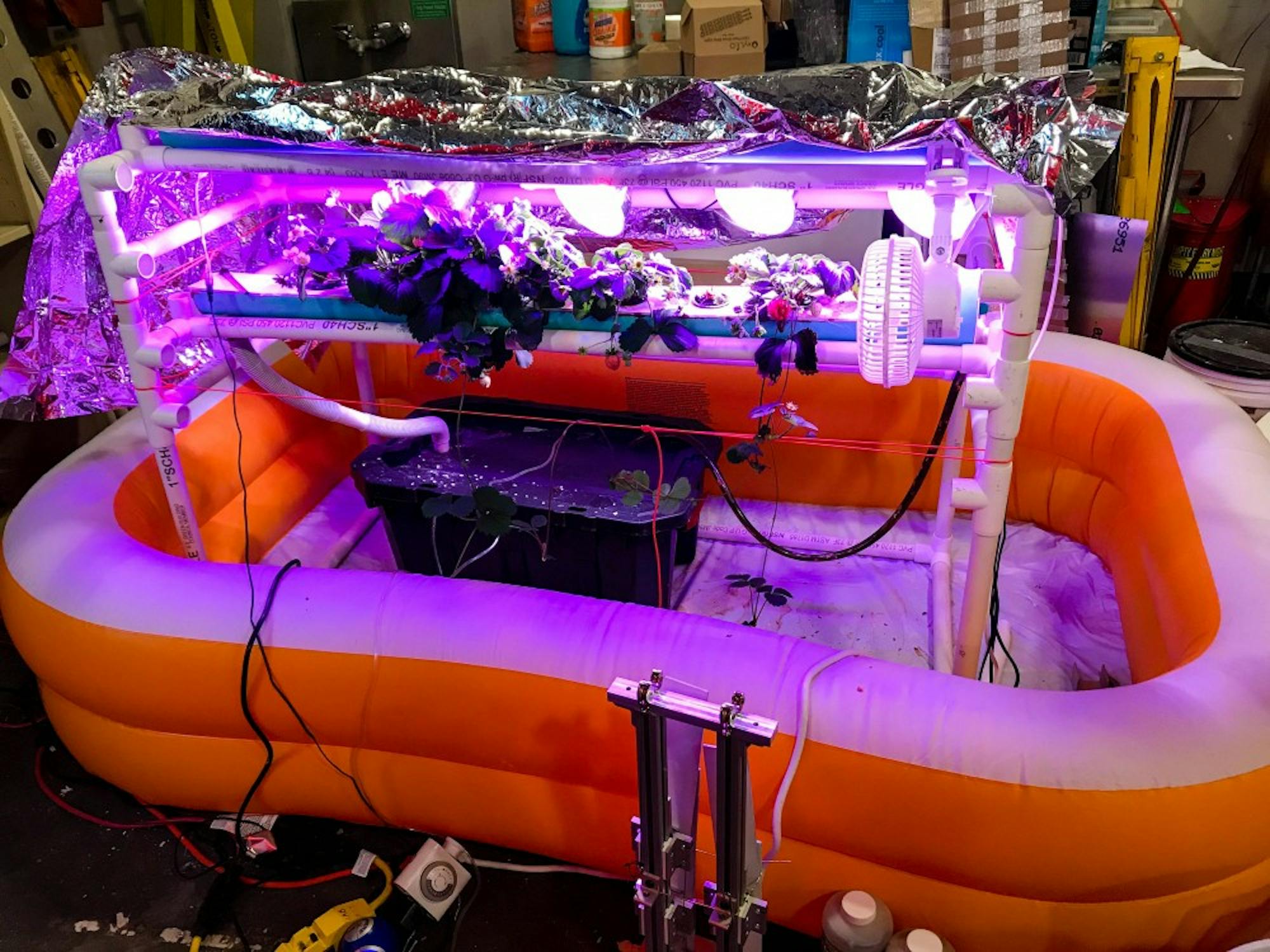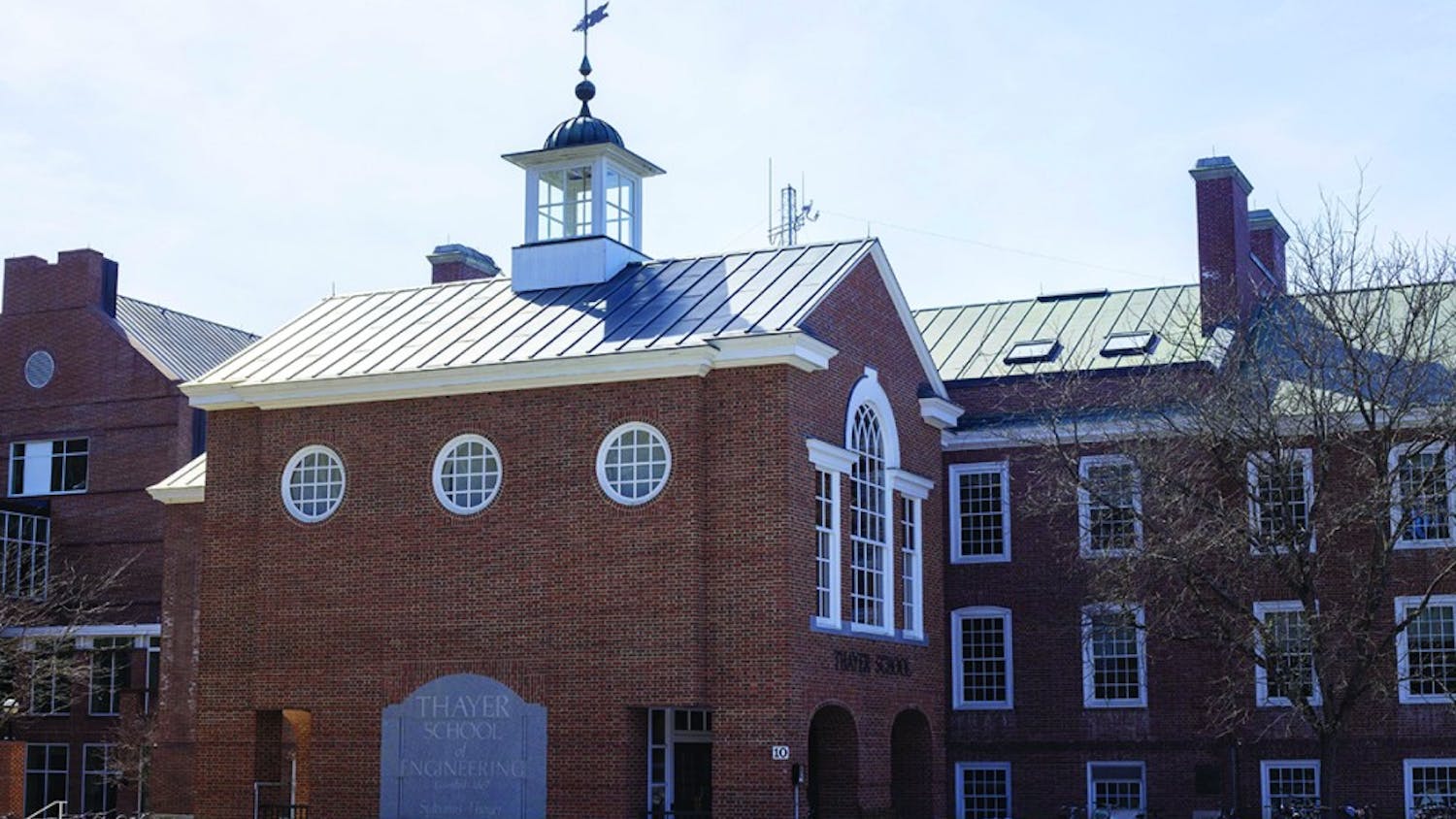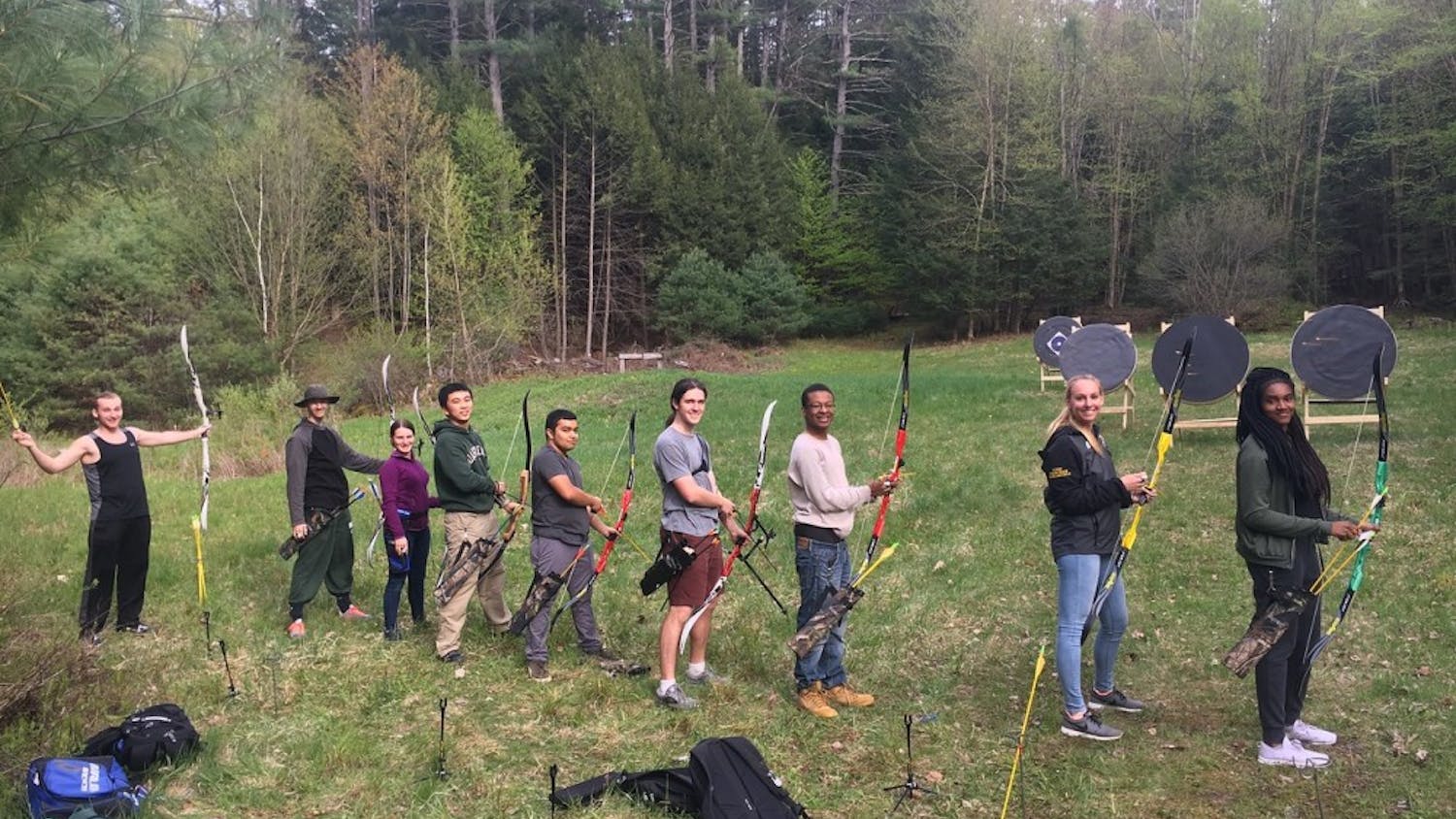When a power outage hit Team Dartmouth’s greenhouse project for the NASA Breakthrough, Innovative and Game-changing Idea Challenge, the team was alarmed. For 30 hours, their plants went without water or nutrients and wilted. Yet when the power turned back on, the plants came back to life within three hours.
“Right after that, the plants started producing flowers and right after that, fruiting,” Alexa Escalona TH said. “And so we even learned something about how inducing stress into the system can be really helpful for getting the strawberries or whatever plants it would be to fruit earlier and start producing edible food quickly. “
The power outage mishap did not prevent this team of Dartmouth students from winning first place in NASA’s 2019 BIG Idea Forum this past week. This year’s iteration of the BIG Idea Challenge was a national competition that sought innovative ideas for the design and operation of a Mars greenhouse. Their project, dubbed DEMETER, stands for “Deployable Enclosed Martian Environment for Technology, Eating and Recreation.” According to the team’s technical paper, DEMETER’s main purpose was to provide sufficient quantities of nutritious food for a four-person crew of astronauts.
The team’s greenhouse design is based on an automated hydroponic system that uses a cylinder inside a torus. The cylinder’s purpose is to house the system that dispenses and recycles the water and nutrients needed for the plants. Not only can the four-person crew choose between eight selected crops, but they can also personalize their diets with optional herbs and spices to grow. Other features of the greenhouse include a track for exercise and a viable living space and area for daily engagement.
The competition was divided into two phases, the first of which led to the selection of five finalists by a panel of judges. The five finalists, which included Team Dartmouth, advanced to the second round, where they were able to present their research to another panel of judges to determine final rankings. Other teams that made it to the second round in this year’s challenge included the Massachusetts Institute of Technology, which took second place overall, and the University of California, Davis.
“It validated so much hard work and late nights, which was amazing,” Escalona said. “In general, the team worked so hard and I think we were all really relieved when we made it to the top five ... I would have been happy if we took fifth place, you know, and then getting first was just amazing.”
Team Dartmouth was comprised of David Dick TH, Escalona, Grace Genszler TH, Thomas Hodsden ’18, TH, Peter Mahoney ’19, Morgan McGonagle ’18, TH, Zoe Rivas TH and Christopher Yu ’19.
“These were fantastic students,” engineering professor and Team Dartmouth advisor Benoit Cushman-Roisin said. “We do get great students at Dartmouth College, but then once in a while, you still have some sort of students who shine among all the others. We had a remarkable group and it was so exciting to work with them all around. They had so much enthusiasm, so much organization, so much creativity, so much expertise in their analysis — shining in all respects.”
Genszler said that Team Dartmouth’s project had a good variety of mechanical, environmental, electrical and computational aspects, which fit in well with the project. He added that the Thayer School of Engineering’s interdisciplinary approach to education came in handy when combining these components.
According to Escalona, the team could not have won without the help they received from Dartmouth professors and staff, as well as members from the Black Family Visual Arts Center and friends at Thayer. Escalona was also awarded one of five summer internship spots NASA offered to select members from the five finalist teams.
“[It’s] my hope that we’re going to have some other students working on some other projects for NASA to participate in the theme of the next BIG Idea Challenge,” Cushman-Roisin said. “I hope that Dartmouth College continues to participate in that competition.”




